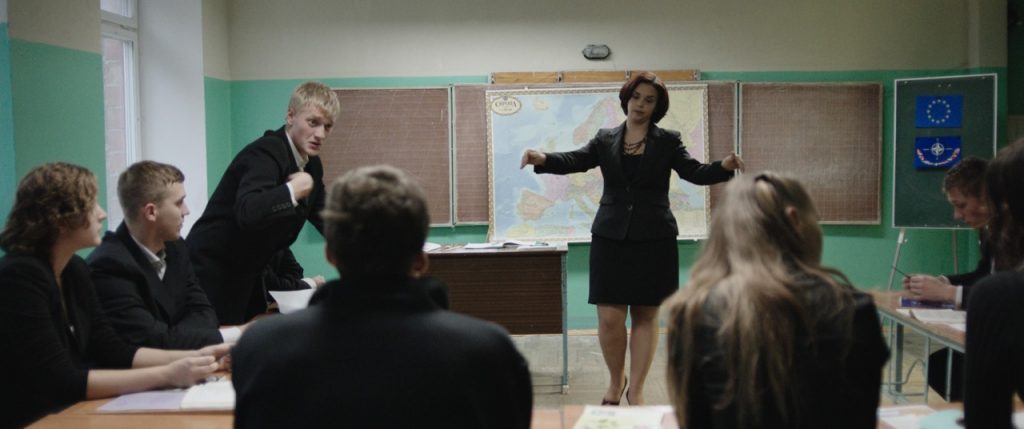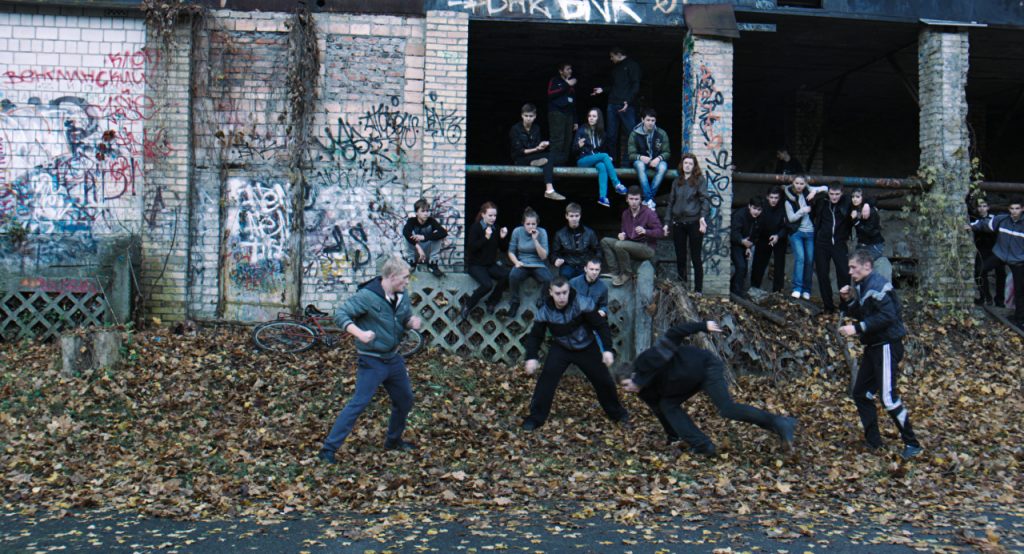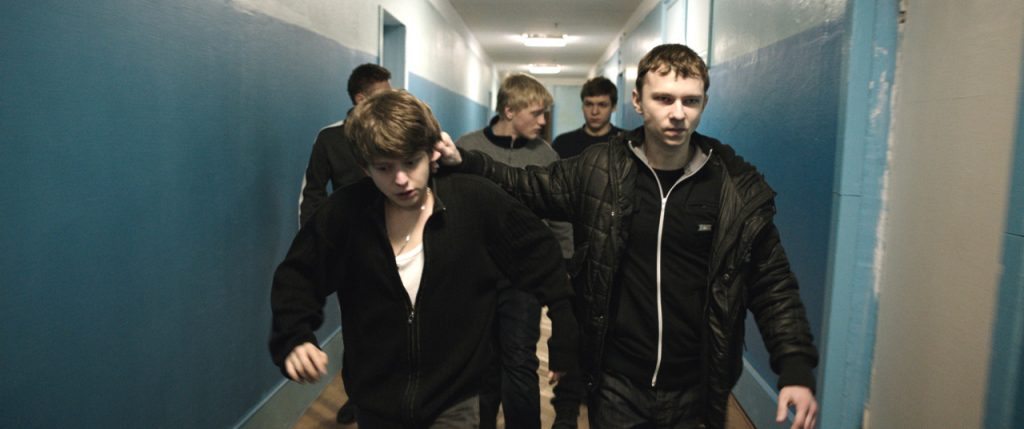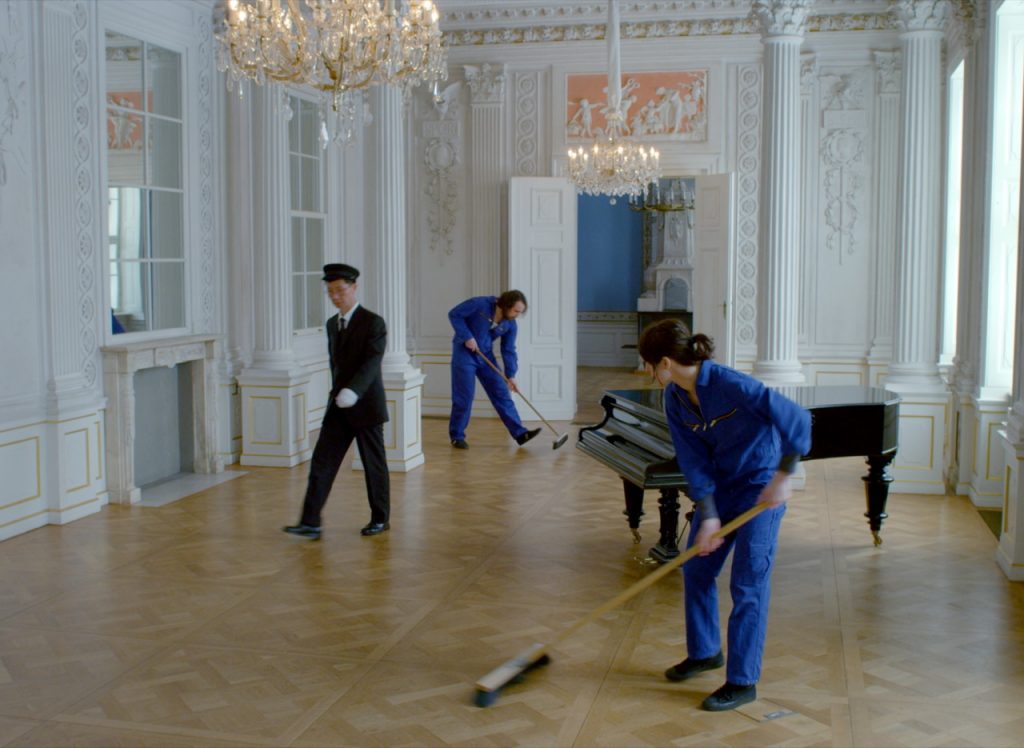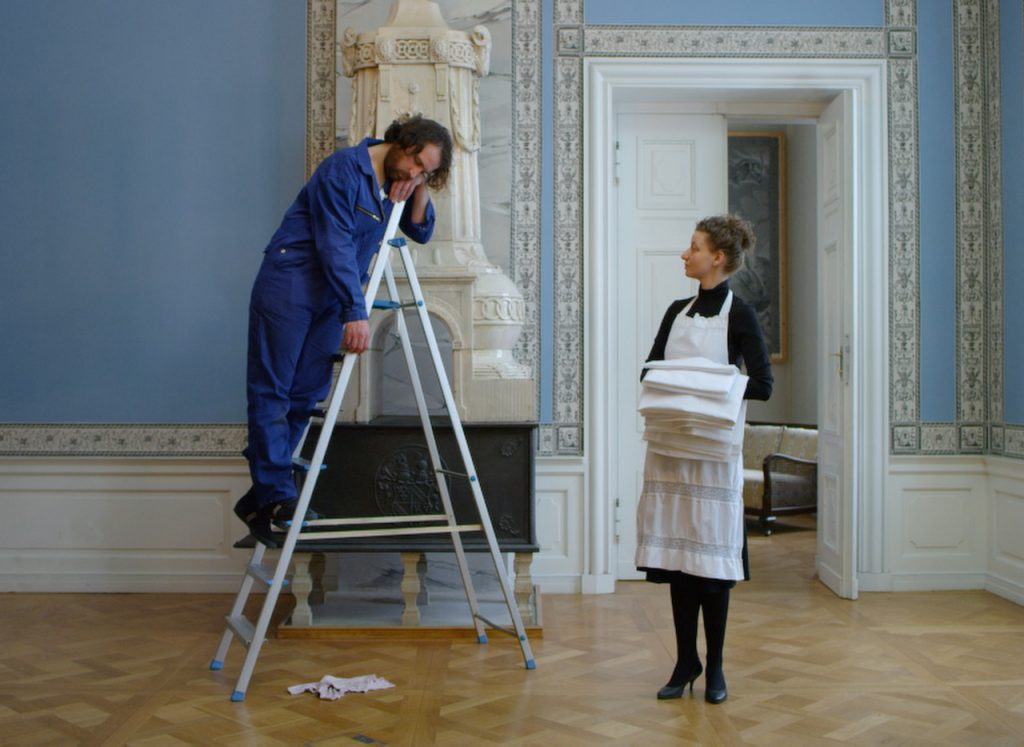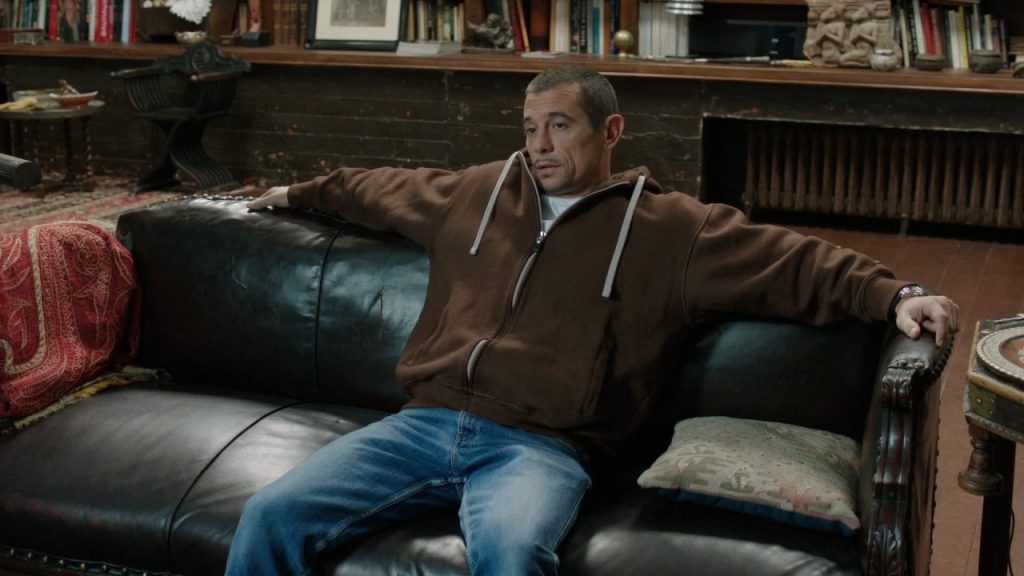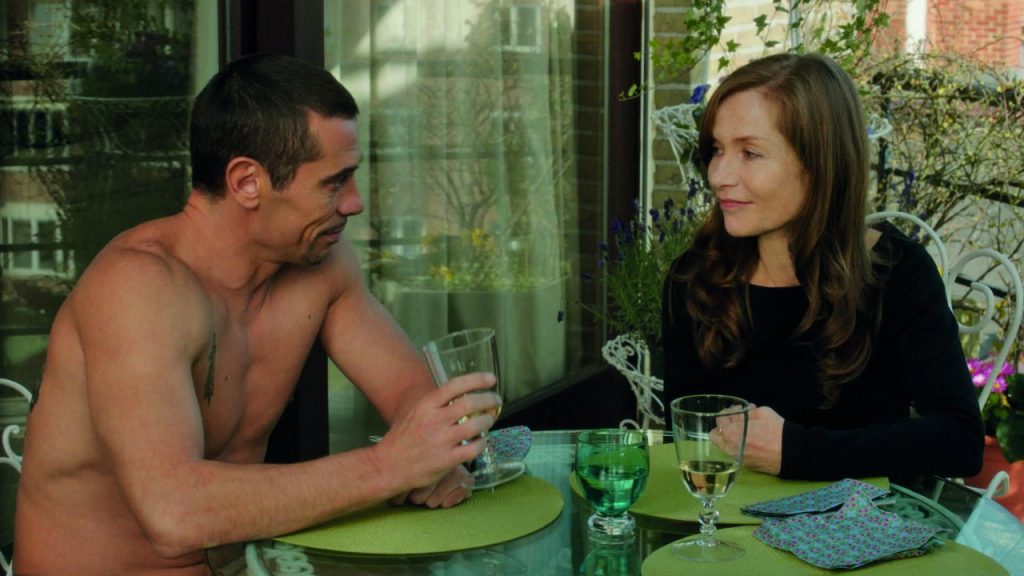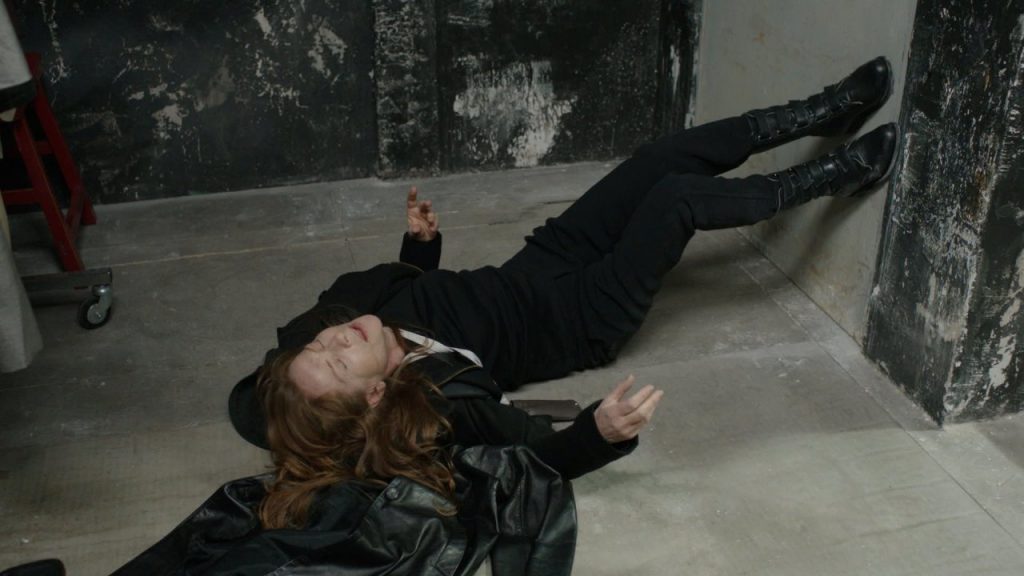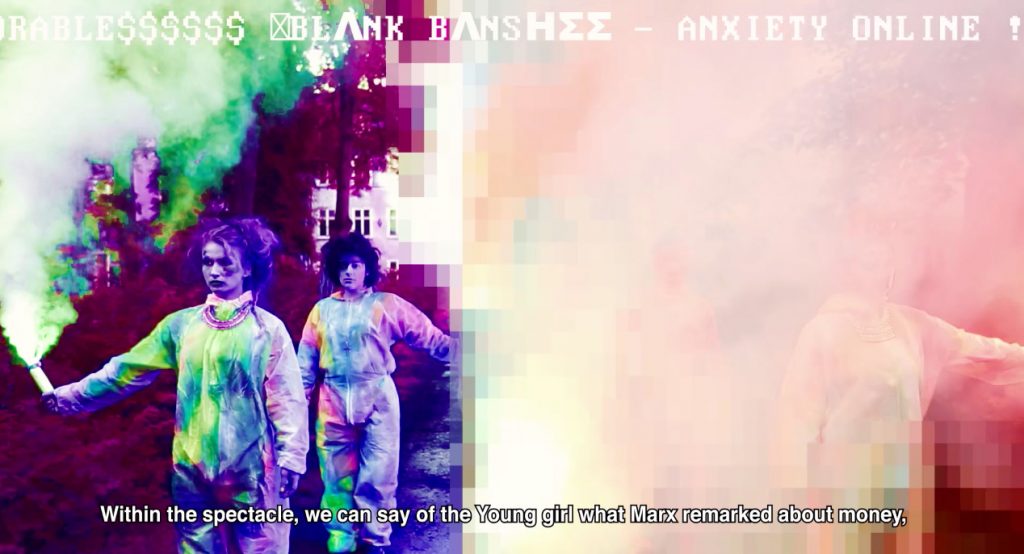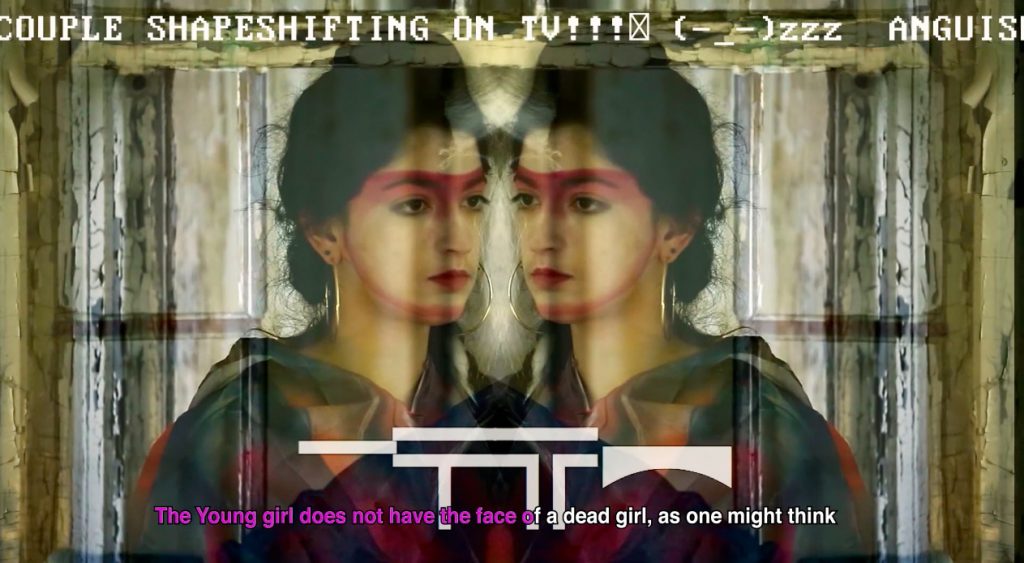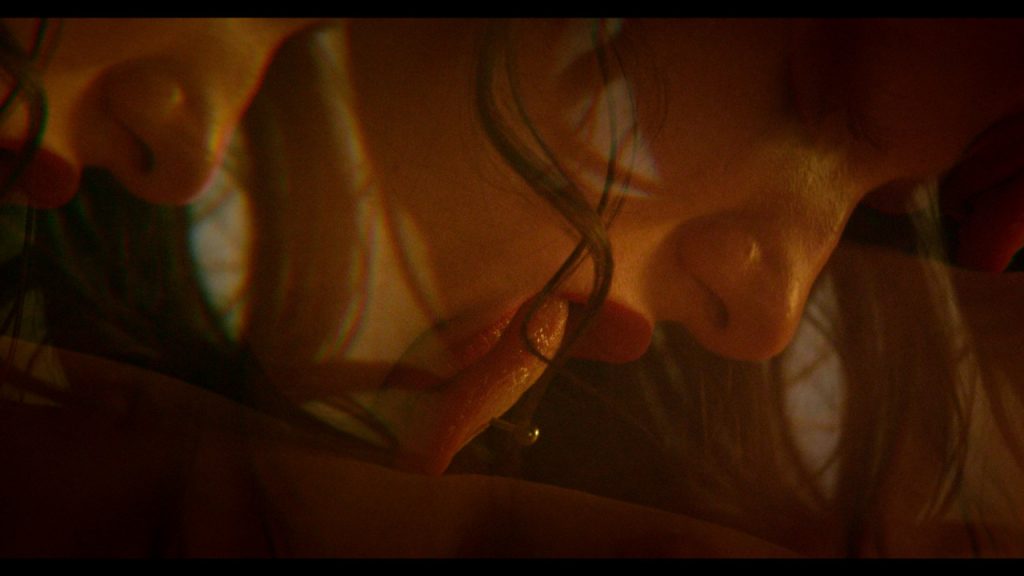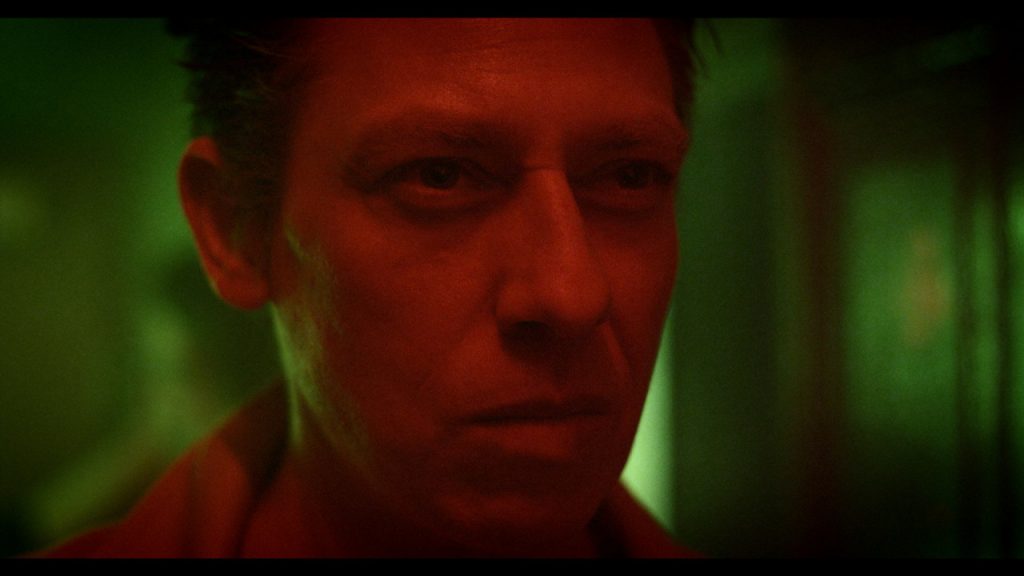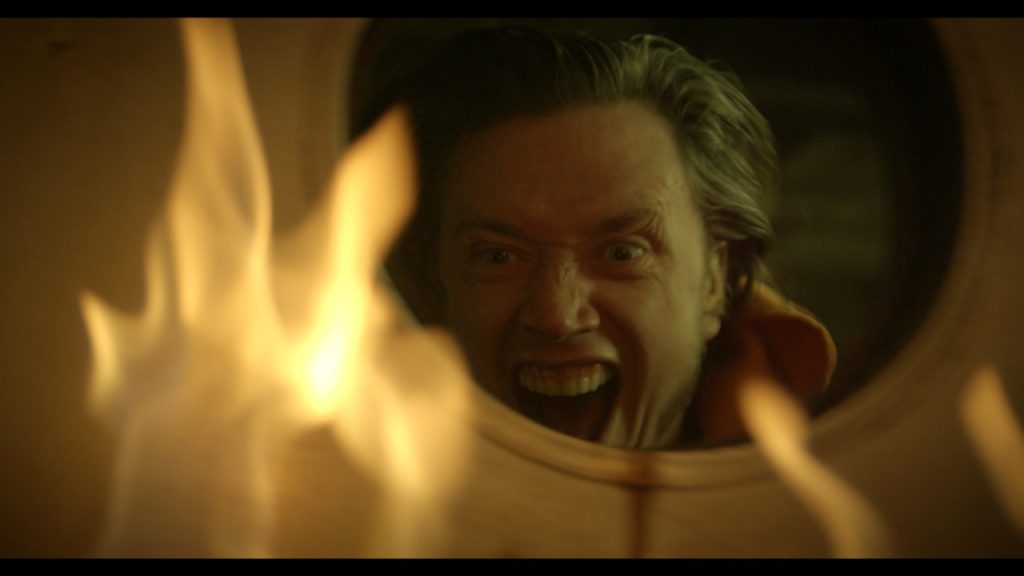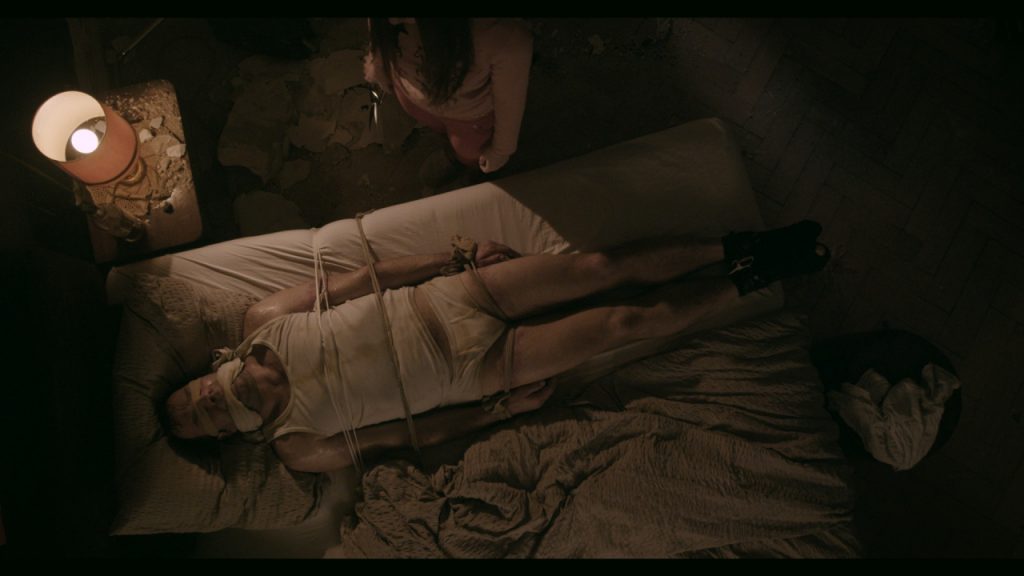The Tribe
(UKR 2014, D: Myroslav Slaboshpytskiy, A: Grigoriy Fesenko, Yana Novikova, 130’, sign language, DCP/bluray)
As it is the case with all fine stories, the story here is conceivably simple: a teenager enters a boarding school as a recruit and has to fit into existing social structures. Director Myroslav Slaboshpytskiy lets bodies speak—without words. And despite their youthfulness, they do this with frightening eloquence. They tell stories of sex and violence, of life within the limits of boarding school walls and yet inside of this, of movement outside of respected societal standards. Communication is done solely through sign language, without subtitles or any added spoken dialogue. This circumstance is necessity—for the figures are all deaf-mute people—as well as concept. By means of taking over the protagonists’ perception and world experience, spectators participate in the perspective of a marginalized fringe group. From there, every countenance, every gesture seems to be full of attitude and emotion. The Tribe accomplishes an intriguing and stimulating viewing experience beyond all accustomed measure; the film claims the viewer to be attentive and then particularly rewards him/her for being it. In its radical consistency, this film is maybe something genuinely new, something that has not been there before. In smooth, wonderfully orchestrated cinemascope tableaus, the camera relentlessly follows the figures’ fate. A multi-layered social drama, a disturbing study of a milieu, an audacious coup de cinéma.
A Proletarian Winter’s Tale
(GER 2014, D: Julian Radlmaier, A: Natia Bakhtadze, Lars Rudolph, 63’, OV english subbed, bluray)
The director Julian Radlmaier will be present.
On April 20 we will have an evening dedicated to fresh German language films and young German speaking filmmakers that found new aesthetics and ways of filmmaking that deviate from those of Berliner Schule, German Filmschool films and other “movements” that come to mind, when you hear the phrase “German Cinema”. The first half of the evening will be filled by “A Proletarian Winter’s Tale“ by Julian Radlmaier, who will also be available for a discussion of his film after the screening.
On behalf of a building cleaning company, three young Georgian men have to clean a Berlin palace, in which the contemporary art collection of a German armaments manufacturer is to be displayed in the evening. On this occasion, proletarian people are not welcome and banished to the attic. Downstairs however, a delicious buffet is luring, which generates a revolutionary urge in the attendants. Did not the French Revolution also begin with a wedge of cake? Amid the upper class jet set they start rebelling against their rules and for a different life. Their resistance feeds on something obvious: their bodies. With them, they brave the burden of the space, the violence of a clear-cut, lordly architectonics and traditional order. They do not satisfy their societal function, their ascribed role any more. We prefer not to. They do not participate any longer, occasionally plainly stand around lazily or get up to odd nonsense. With a formally concise visual style regarding space, much humour and an eye for constellations of power, A Proletarian Winter’s Tale tells of the superficial abundance of a black hole that lacks any interest in a political awareness in film and art. Here, we have a film that refractorily refuses to be swallowed by that same hole.
20 April, 10 pm – Luru-Kino – 6/5 (red.) euros
Abuse of Weakness
(F 2013, D: Catherine Breillat, A: Isabelle Huppert, Kool Shen, 104’, OV w/english subs, DCP)
In a programme that deals with intimacies and female perspectives on desire, Catherine Breillat must not be lacking. In our selection as well, Abuse of Weakness does what her controversial films usually achieve: it expands Vaginale’s thematic range with its very distinct point of view on things. It is complex and inspired autobiographically.The anti-heroine, directress Maude is a strong, venturesome woman, who spots the arrogant, charismatic Vilko on TV at home after a stroke and ultimately wants to have him take part in her next film. Between the two, a strangely amicable, perpetual power game evolves that reposes on mastery and mutual addiction. Huppert’s full body performance is a compelling gem, on the side of which French rapper Kool Shen cuts not too bad a figure though. Exquisitely, the film tells that the abuse of weakness is always related to the abuse of power. So, maybe even a strong character turns out to be a weakness. „The abuse of weakness is something delicious. You are very happy when it is happening to you.“ (Breillat)
24 April, 8 pm – Schaubühne Lindenfels – 6/5 (red.) euros
GEGENkino presents video art: all eyez on v
For all eyez on v, the entire ballroom of Schaubühne Lindenfels turns into a space full of screens. With its oscillating double meaning of shielding and showing, to screen contains an important fundamental feature of the exhibition. Until today, everyone but for women themselves have told stories about women on screen much too often. They were shielded from the public, they still have a hard time to place their perspectives appropriately. We are very interested in precisely those other perspectives! For this reason, we recapture the male dominated screens with them and present all eyez on v – a curated selection of work done by artists that followed our open call and handed in their videos.
23 to 25 April
Ballroom Schaubühne Lindenfels
23 April: Opening 6.30 pm
24 & 25 April: 7 – 11 pm
Kuration: Stephan Langer, Clara Wieck, Katharina Wittman
German Angst
(GER 2015, D: Jörg Buttgereit, Michal Kosakowski, Andreas Marschall, A: Lola Gave, Axel Holst, Annika Strauss, Andreas Pape, Matthan Harris, Milton Welsh, Kristina Kostiv, Désirée Giorgetti, 111’, dF & eOmdU, DCP)
Director Andreas Marschall will be present.
We will add some blood, gore and phantasies of revenge to our program by bringing you the new horror film collage “German Angst” by German horror filmmaker triumvirate Jörg Buttgereit, Michal Kosakowski and Andreas Marschall. The later two of which will also be present at the screening.
The episodes of directors Buttgereit, Kosakowski and Marschall are devoid of “German Angst”, that is a specific German over-caution, an indeterminate anxiety paired with musing and hesitation. Their three metropolitan nightmares are courageous, nonconformist, rough and harsh—a soothing contribution to German genre cinema that might be enjoyable and instructive to non-connoisseurs as well, concerning their own fears and the capacity to withstand the stress emanating from an electrical bread knife.
Buttgereit’s “Final Girl” is the prelude: an ugly, white window curtain. Behind it, in close-up, an approximately 14-year-old sleeping girl. Is she the “Final Girl”? The flat is stiff with dirt. On the radio, there is news of a man who has chopped up his wife. It says, he thought he was Jesus and his wife was an incarnation of the devil. Besides, the girl takes poultry scissors and walks into the parental bedroom.
Michal Kosakowski’s “Make a Wish” tells how Kasia and Jacek, a deaf-mute Polish couple, get into the hand of a sadist neo-Nazi gang. Apparently, the two young people are at the mercy of the thugs. However, Kasia has a charm that has already changed the course of history during World War II and thus saved her mother. This time as well, something magical happens that surprisingly perverts the situation.
In Andreas Marschall’s last episode “Alraune”, a young man residing in Berlin night-life comes across a secret erotic club that promises the ultimate sexual borderline experience with the help of a drug made out of roots of the legendary Alraune. But the ecstatic experiences have atrocious side effects.
21 April, 8 pm – Luru-Kino – € 6/5 (red.)

